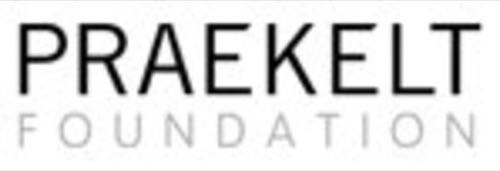Can mobile phones be an effective tool in the fight against AIDS? A new group of organizations believe they can.

Last week, in conjunction with the PopTech! conference, the Praekelt Foundation and partner organizations announced a new effort that will use the power of mobile messaging to help fight HIV/AIDS and tuberculosis in South Africa. Project Masiluleke will utilize the power of the mobile phones as a low-cost way to deliver health-related information and prompt call-ins to call centers for those affected by these health care crises.
This is a guest post written by Jason Harris, a mobile writer and enthusiast. To follow him further, read his blog.
As discussed here and elsewhere before, South Africa is a country with an amazingly high mobile phone adoption rate – around 90%. Unfortunately, South Africa is also a country that has around 1000 HIV/AIDS related deaths ever day. Project Masiluleke, which means “to give wise council” or “lend a helping hand” in Zulu, aims to use the mobile phone as a communication conduit between doctor’s visits. The project’s intent is to bring those with HIV and TB into the healthcare system earlier, when the diseases can be most effectively treated and/or slowed.
Project M, as it’s being called, consists of four major components.
Drawing Perspective Patients In
First, the team behind Project M will use “Please Call Me” (PCM) messages to prompt citizens to call into a HIV/AIDS call center. Trained call center operators will provide healthcare information, counseling, and referrals to local testing clinics. Please Call Me messages are a wildly-popular SMS-like message that prompt a party to call the requesting party. PCM messages are used heavily in South Africa, roughly 25 million PCM messages are sent every day. PCM messages will be adapted by the Project M team to deliver advertisements prompting recipients to call into HIV/AIDS call centers if they are in need of health-related resources.
In the second part of the project, the Project M team will use TxtAlert, a text messaging reminder system developed by Praekelt Foundation, to send out SMS messages to remind patients of upcoming clinic visits. As it stands, only 10% of South Africans with AIDS are actively receiving anti-retroviral therapy. TxtAlert will help remind patients who are enrolled in these therapy programs to attend their visits, enhancing their care.
Reaching Out, Mobily
As a third part of Project M, a virtual call center will be initiated and built. Existing AIDS/HIV helplines will be enhanced by using teams of highly trained and committed HIV+ patients. This group of peer counselors will be made up of “gold star” patients who are knowledgeable about their about their illness and are committed to providing high-quality advice and guidance to those who are dealing with the emotional weight of an HIV diagnosis. The peer counselors will be selected and trained by NGO and government officials.
The virtual call center counselors will be available via mobile phone and will field questions remotely. Not only will the virtual call center create thousands of jobs, but those who call into the call center will be connected with a nurturing voice to help console and distribute quality information.
The fourth and final piece of Project M involves at-home HIV testing with mobile support. Unfortunately, with such a high population of HIV infected persons, the South African healthcare system isn’t fully capable of handle the tremendous load. Also, South Africans who may be HIV positive avoid the lines to get tested because of the stigma of being seen in line.
To help battle this, the Project M team will employ mobile testing stations that can conduct the blood test in one’s home, giving them privacy. Trained councilors will also be on hand to administer guidance and advice in case it is needed. The concept of an at-home test has been well received by the South African government and healthcare officials. A mobile testing solution would be welcome in rural areas where the testing resources are most needed.
Lots of Players Involved
The team behind Project M is made up of various organizations including businesses, NGOs and government agencies. The major players include the Praekelt Foundation, mobile network operator MTN, design firm frog design, National Geographic, and NGOs such as LifeLine Southern African and World-Class Advisors.
So Much At Stake
There is no doubt that the mobile phone represents a huge opportunity to disseminate information to huge groups of people quickly and cheaply. It is refreshing to see so many organizations involved with Project M including mobile network operators, mobile technology firms, NGOs and government officials, all united to help potential victims of dreaded diseases.
This time of effort and coordination, if applied to more social causes, would bring tangible change in many areas of need. We send kudos to Project Masiluleke and we will continue to track the progress of the project on an ongoing basis.

















